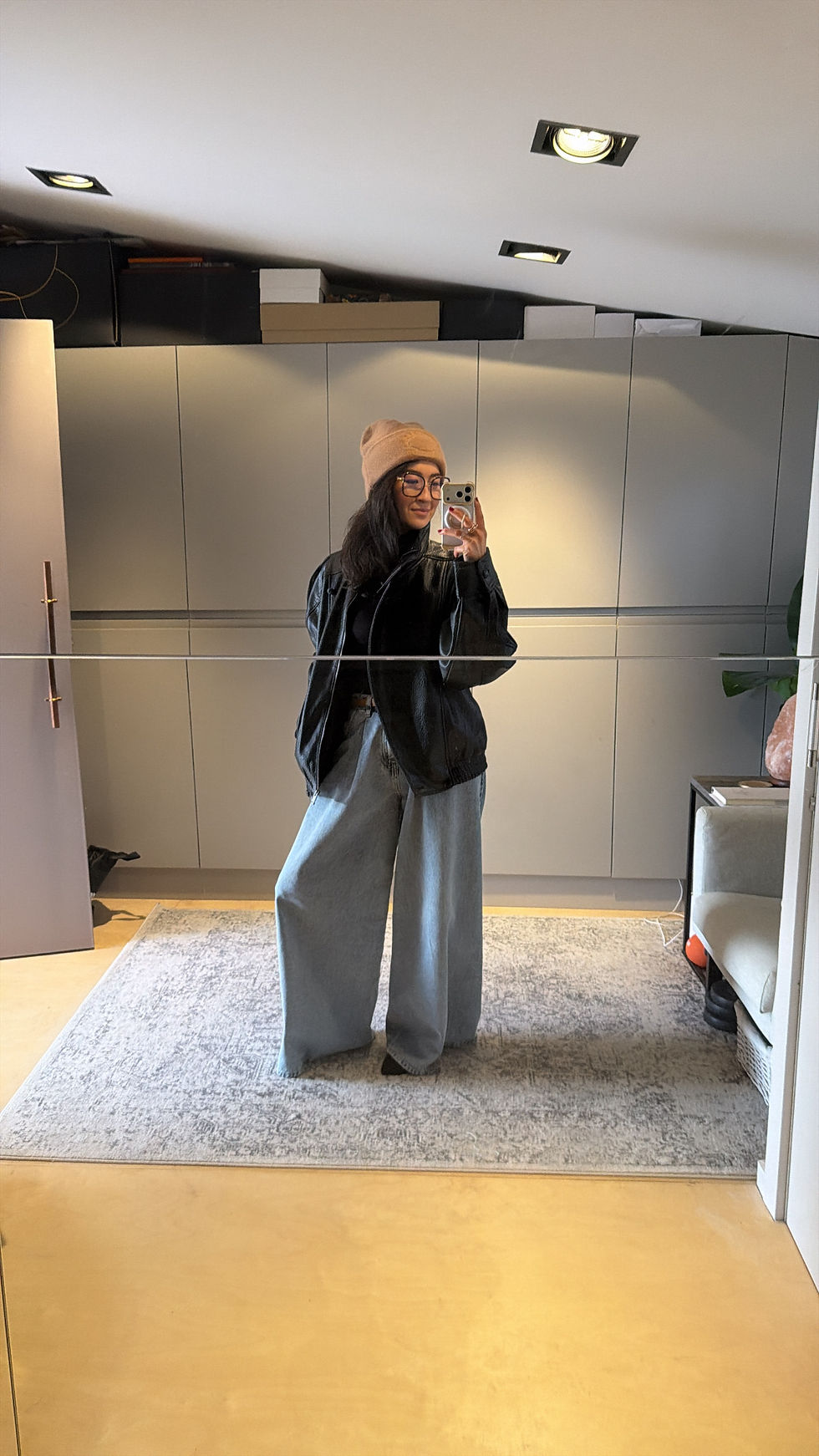Why You Should Never Do Microneedling (Derma-Rollering) at Home
- Emmaline Tsui
- Oct 6, 2025
- 3 min read
This is most definitely something that scares the life out of me! I get asked about microneedling at home quite a bit, especially when certain 'influencers' start talking about doing it or create their own branded one. I hate to sound rude, but in my very humble opinion, influencers (whether they are skin/beauty/lifestyle etc) are not skin specialists, dermatologists or even facialists (unless they actually are - if you know what I mean) and therefore, do not touch skin daily, treat skin daily and know what's best for clients.

This is something I'm quite passionate about as I have seen so many people online purchasing tools and products under the guise that they are going to get some kind of facelift effect, only to find that they have been hoodwinked by an influencer making a quick buck and ended up with a lot of skin damage.
There are some things that need to be left to the professionals and microneedling at home as definitely one of those.
Microneedling has become one of those treatments that gets people very excited. After all, the promise of collagen stimulation and smoother, firmer skin sounds too good to pass up. And in a clinic setting, when it’s done correctly and in a controlled, sanitary environment, microneedling can indeed be very effective.
But at home? That’s another story entirely. Here’s why you should never attempt DIY microneedling.
IT MOST CERTAINLY ISN'T SANITARY
In clinic, every needle is sterile, single-use and handled with strict hygiene standards. At home, no matter how much alcohol spray you use on your roller, you’re not replicating those conditions. The skin is literally being pierced, which means you’re creating channels for bacteria to waltz right in. Infection risk skyrockets when sanitation isn’t medical-grade.
YOU TECHNIQUE MATTERS
Microneedling isn’t just about rolling something spiky across your face. If you press too hard or drag the roller instead of stamping or gliding correctly, you’re not creating neat micro-channels. Instead you’re causing micro-tears. That’s the exact opposite of what you want, and it can lead to long-term damage and scarring.

BLUNT NEEDLES = DAMAGED SKIN
In a professional setting, needles are always sharp, precise and used only once. At home, people often reuse rollers multiple times, which means the needles dull quickly. A blunt needle doesn’t puncture cleanly – it scratches and tears. Think of the difference between cutting fabric with sharp scissors versus rusty garden shears. Precisely! Absolutely not!
THE RISK OF PIGMENTATION
Improper technique, incorrect needle depth and lack of proper aftercare can all trigger post-inflammatory hyperpigmentation. Instead of the smooth, glowing skin you were aiming for, you could end up with uneven patches and marks that are far harder to treat than the original concern.
YOUR SKIN MIGHT NOT HEAL PROPERLY
Even if you avoid infection, there’s the risk of delayed healing, increased sensitivity, prolonged redness and even worsening of the very issues you were trying to fix. Not exactly the self-care win you were hoping for.
WHAT TO DO INSTEAD
If you’re looking to boost collagen and improve texture from home, there are far safer (and far more effective) options:
SkinBetter Science AlphaRet Peel Pads: These give you the resurfacing benefits of a clinic peel, but with zero risk of tearing your skin. Click here to order
SkinBetter Science AlphaRet Clearing Serum: Ideal if you’re also prone to breakouts, this refines skin while keeping it calm and balanced. Click here to order
Calecim Multi-Action Cream: A brilliant collagen-supporting treatment that firms, lifts and restores skin without a single needle.
Skinade Collagen Drink: Working from the inside out, this builds collagen and elastin with none of the risks of at-home needling. It is also good to note that Skinade has a similar effect on the skin too. Drinking hydrolysed collagen (broken up pieces) sends the same kind of signals to the brain as microneedling. They both tell the brain the body has been injured and so it needs to boost collagen to heal and repair... but with Skinade there isn't an infection risk!
Microneedling can have its place... in a clinic, performed by a trained professional who understands the correct depth, technique and hygiene protocols. But at home? It’s just a long lists of risks that can leave your skin in worse shape than before.
If you’re curious about whether microneedling is right for you, or if you’d like me to design a safe collagen-boosting routine tailored to your skin, fill in my free Skin Check-In and I’ll create a plan that gives you results without the risks.
Thank you so much for reading,
Emmaline




Comments